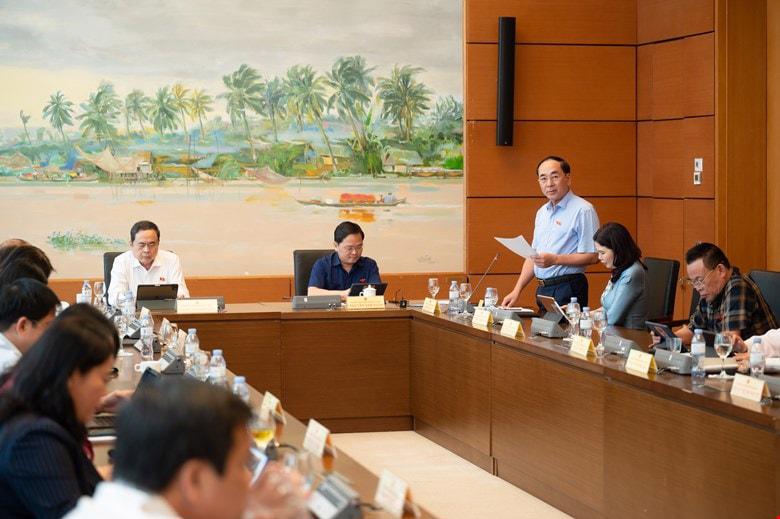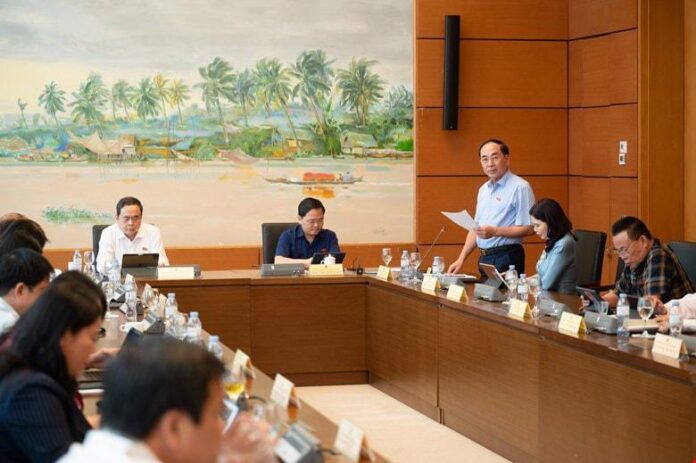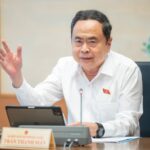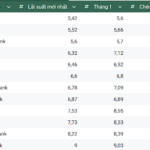On the afternoon of May 12, the National Assembly continued its 9th session with discussions on the Personal Data Protection Law. Speaking about the draft law, Senior Lieutenant General Tran Quoc To, Deputy Minister of Public Security (Bac Ninh delegation), said that the development of the law stems from the practical needs of the present time, as personal data is considered an important resource in socio-economic development, innovation, and ensuring social order and security.
PERSONAL DATA IS A SPECIAL TYPE OF DATA, CLOSELY TIED TO HUMAN RIGHTS AND PRIVACY
The Deputy Minister of Public Security emphasized that Vietnam’s legal system currently consists of 68 legal documents directly related to the protection of personal data. However, during the implementation process, several shortcomings have been exposed, requiring adjustments and amendments. These include the lack of criminal sanctions for violations related to personal data protection and the absence of administrative penalties for such breaches.
In reality, many organizations and businesses have collected excessive personal data beyond what is necessary for their industries, products, and services. The collection of personal data by organizations, individuals, and malicious entities without the consent of the data subjects has seriously infringed on the legitimate rights and interests of citizens.
With the widespread digital transformation taking place, incidents of personal data leakage and loss are common during data transfer, storage, and exchange for business purposes. Inadequate protection measures have led to data being stolen, publicly disclosed, or used for illegal activities such as fraud, gambling, defamation, and humiliation.

Additionally, the buying and selling of personal data in various forms have caused significant economic damage and affected the reputation of businesses, organizations, and individuals, underscoring the urgent need to improve the legal framework for personal data protection.
Vietnam is also accelerating the development of its e-government, aiming for a digital government and a digital economy, with data and personal data playing an increasingly significant role in various sectors and services and occupying a crucial position in the national economy.
The Deputy Minister emphasized that personal data is a special type of data, closely tied to human rights and privacy as stipulated in the Constitution and laws, and it is integral to the data subject’s personal rights. Therefore, the requirements and conditions for processing personal data to ensure protection must adhere to specific principles and should be given priority, similar to current international practices.
Unifying the regulation of issues related to personal data protection in this law will create a synchronized legal framework, addressing the limitations of the current scattered and inconsistent provisions.
Moreover, it is essential and practical to include within the scope of the law the protection of personal data in both traditional (paper-based) and electronic environments, safeguarding the rights and legitimate interests of data subjects. Restricting the scope to only the electronic environment would create legal loopholes that could be exploited by malicious entities to infringe upon personal data.
Regarding Article 46 of the draft law on transferring the personal data of Vietnamese citizens abroad, to ensure consistency and compatibility with international practices, the Deputy Minister suggested further reviewing and adjusting the provisions. This includes paying closer attention to cross-border data transfers, ensuring ease of understanding and application without creating administrative barriers.
PROTECTION WITH EMPHASIS ON MECHANISMS TO ENHANCE DATA VALUE
Contributing to the discussion on the law, delegates agreed on the necessity of enacting the law, stating that it would serve as a foundational piece of legislation for the digital transformation process, the development of a digital economy and society, and the construction of a socialist rule-of-law state.
Delegate Le Thu Ha from the Lao Cai delegation emphasized, “In an era where data is likened to the new oil, protecting personal data is not just about safeguarding privacy, but also about protecting individuals, safeguarding national digital sovereignty, and strengthening public trust in the digital transformation process.”
Highlighting that personal data is a “digital replica” of every individual in the digital age, Delegate Ha suggested that the Personal Data Protection Law should not only be a technical law but also a proclamation of privacy rights, digital ethics, and the state’s responsibility in safeguarding citizens from invisible risks in cyberspace. She proposed adding prohibited acts to the law, including coercing the provision of data, large-scale illegal collection, using malware to steal data, exploiting AI for discrimination, and infringing on human rights, cybersecurity, and national security.
The current draft law focuses on data protection but falls short in emphasizing mechanisms to enhance data value. Clause 5 of Article 7 of the draft law absolutely prohibits “buying and selling personal data.” Delegate Tran Van Khai argued that while this provision safeguards privacy, it lacks flexibility to encourage data exploitation and sharing for development.
Showing concern for data value, Delegate Tran Van Khai, Vice Chairman of the National Assembly’s Committee on Science, Technology, and Environment (Ha Nam delegation), assessed that the draft Personal Data Protection Law is a preliminary step in establishing a legal framework for personal data protection. He acknowledged several progressive elements in the draft, such as ensuring the rights of data subjects, transparency, and information security obligations for data controllers, along with protective measures.
Notably, the draft demonstrates a spirit of encouragement for innovation through provisions such as exempting startups from certain data protection personnel requirements for the first five years and permitting the use of personal data in scientific research, innovation, and digital transformation pilot programs without considering it as data trading. These new elements reflect the spirit of “managing without extreme prohibition” embodied in Resolution 57.
However, according to the delegate, a core content of Resolution 57—the requirement to “make data the main production resource” to develop the data economy—has not been fully institutionalized in the draft law.
The current draft is heavily focused on data protection, neglecting mechanisms to enhance data value. Clause 5 of Article 7 absolutely prohibits “buying and selling personal data,” which, according to the delegate, safeguards privacy but lacks the flexibility to encourage data exploitation and sharing for development.
The delegate argued that if the law does not pave the way for safe data exploitation, it will be challenging to establish a healthy data market. Personal data may continue to be bought and sold clandestinely in the black market, and the state will be unable to capitalize on this digital asset.
Therefore, the delegate proposed amending Clause 5 of Article 7 (Prohibited Acts) by replacing the absolute prohibition on “buying and selling personal data” with a ban on such activities only when conducted without the data subject’s consent or for illegal purposes. Additionally, he suggested that voluntarily sharing one’s data to receive benefits should not be considered a violation if data protection principles are followed.
Furthermore, the delegate recommended adding a clause in Chapter IV (Use of Personal Data) to encourage the state to promote the sharing and use of anonymized or aggregated data for research and technological development. This would foster an open data ecosystem between the state and businesses, boost the data economy, and ensure that privacy is not infringed upon.
According to the delegate, these proposals aim to ensure that the Personal Data Protection Law is both stringent in safeguarding privacy and flexible in creating a conducive environment for data to become a robust and comprehensive driver of development.
The Resolution 57 Portal Has “Welcomed” 426 Files of Product and Technology Solutions.
Over ten insightful ideas and initiatives, submitted by scientists, organizations, and individuals via the online portal, have been forwarded by the Ministry of Science and Technology to relevant authorities for further investigation and potential implementation.
The State Bank Approves Capital Increase for NCB to Over VND 19,200 Billion
The State Bank of Vietnam (SBV) has approved in principle National Commercial Joint Stock Bank’s (NCB) proposal to increase its charter capital by VND 7.5 trillion ($317.46 million). This move will see the bank issue private shares to professional securities investors, boosting its capital base and positioning it for future growth.
‘Shortcuts to Success’ in Vietnam Has Never Been This Obvious
The resolution No. 68-NQ/TW, issued by the Political Bureau on May 4, 2025, marks a pivotal turning point for the development of the private economy. This landmark resolution introduces a comprehensive set of solutions aimed at eliminating red tape, enhancing protection for businesses entering the market, and unleashing the full potential of economic resources.
The Speaker: In Many Places, Only a Change in Party Secretary or Chairman Results in Alterations to Urban Planning
“The Speaker of the House expressed concern over the lack of long-term vision in provincial planning. He noted that the efforts of the current secretary and chairman to develop a comprehensive plan might be undone by the next administration, leading to a constant cycle of changes with little stability.”











































